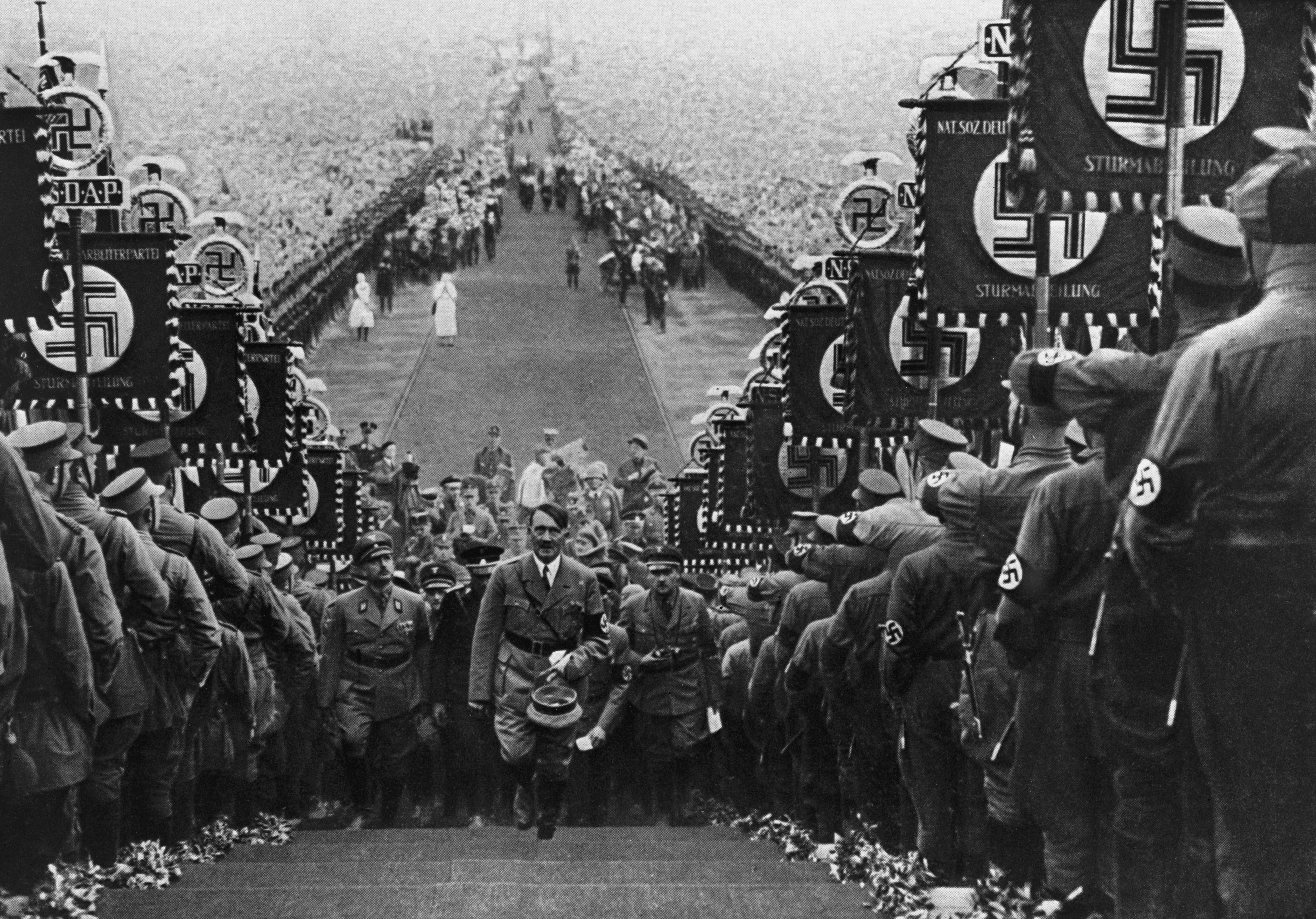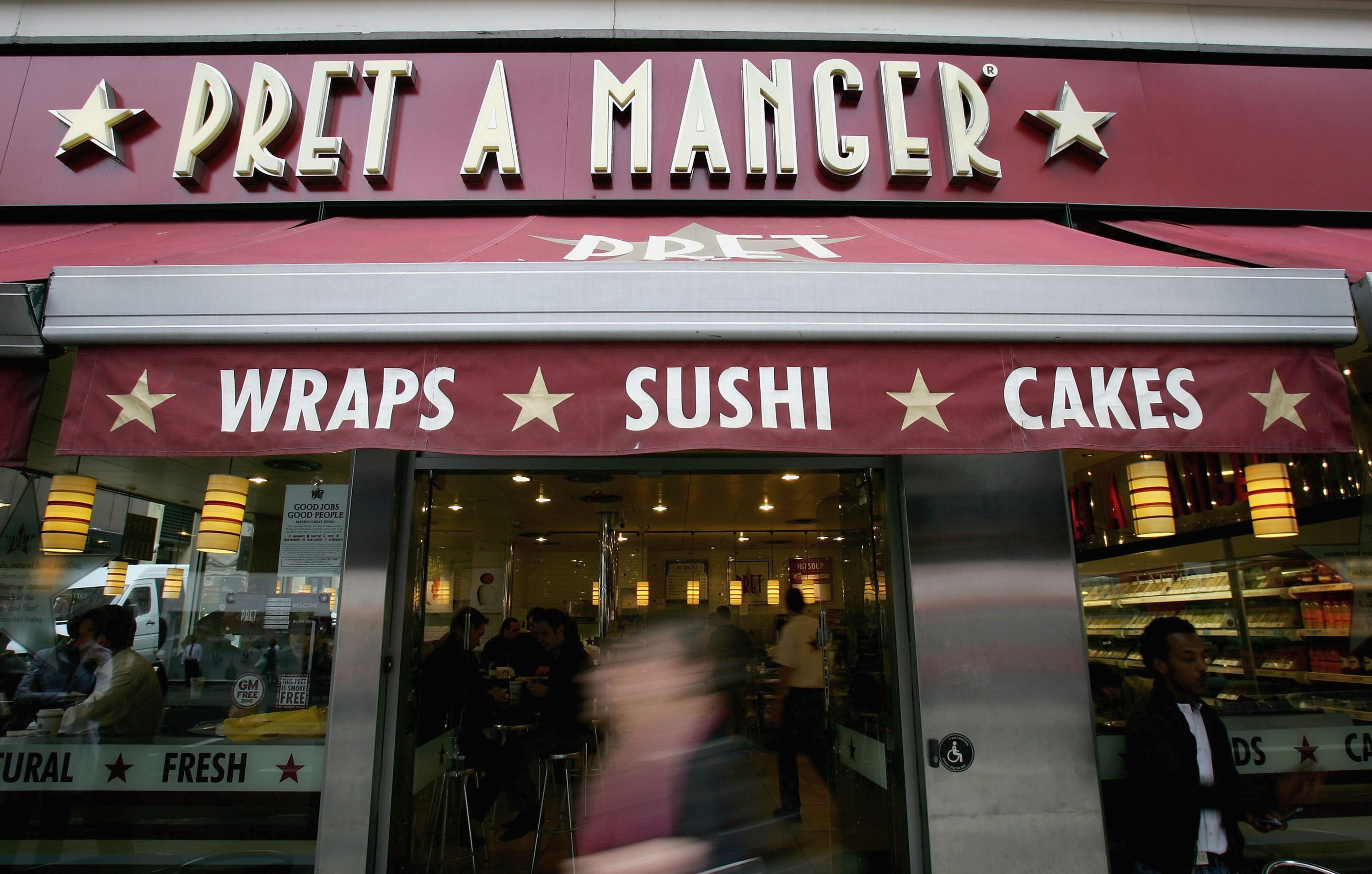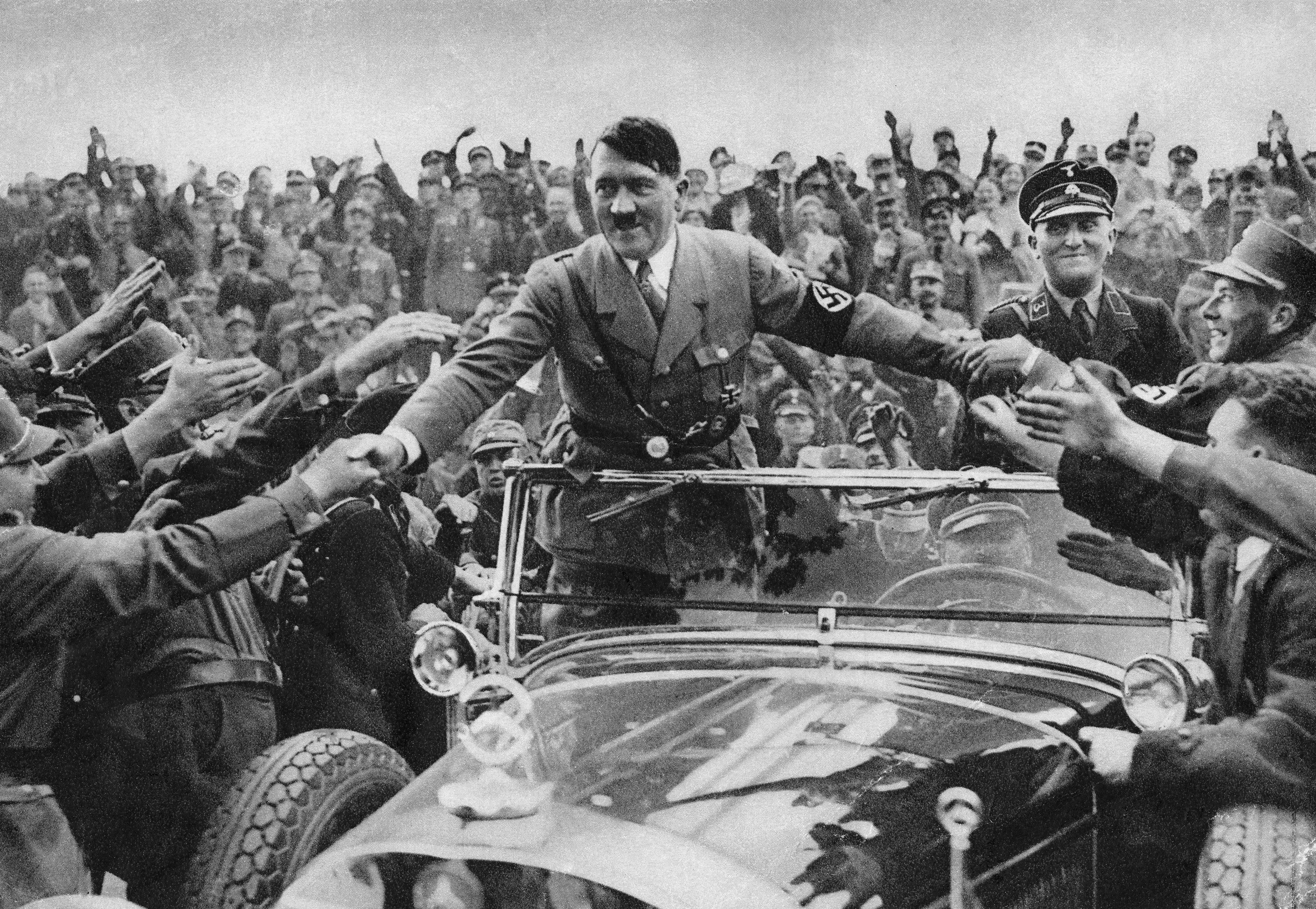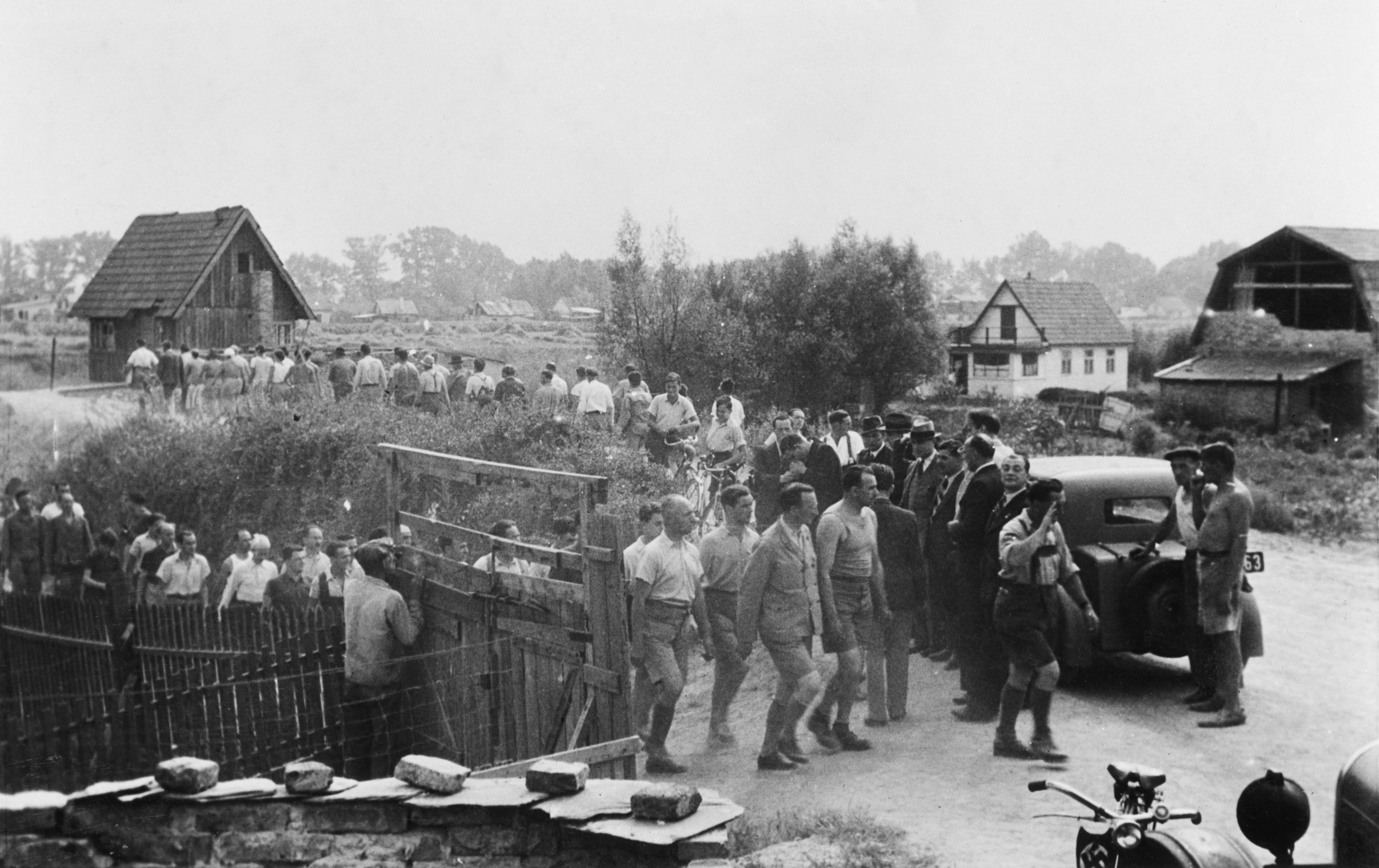The Nazi links of the company that sells more coffee than Starbucks
In this latest book on the business barons who control America’s food and drink industry, Austin Frerick delves into the dark past of a company you may never have heard of but will have most certainly drunk its coffee

You may not have heard of JAB Holding Company, but there’s a good chance you’ve been in one of its stores. The Luxembourg-based conglomerate, controlled by members of the reclusive Reimann family in Germany, owns coffee chains and bakeries from sea to shining sea – and beyond. The list is extensive: Peet’s Coffee, Caribou Coffee, Einstein Bros. Bagels, Bruegger’s Bagels, Manhattan Bagel, Noah’s New York Bagels, Krispy Kreme, Pret A Manger, Insomnia Cookies, and Panera Bread. In fact, the company now sells more coffee than Starbucks.
Even coffee drinkers who try to keep visits to small neighbourhood cafés are probably giving their money to JAB anyway because many independent stores buy their beans from roasters owned by the company, including seemingly local ones such as Stumptown Coffee Roasters, La Colombe Coffee Roasters, Intelligentsia Coffee, and Green Mountain Coffee.
JAB also sells directly to customers who prefer their beverages at home through its ownership of Keurig Dr Pepper, one of the largest makers of single-serve coffee pods in the United States, and Trade Coffee, an online retailer.
JAB became the world’s second-largest purveyor of coffee (excluding coffee sold in stores) within seven years of selling its first bean.
The Reimann family has studiously avoided media coverage and public appearances. In fact, rumour has it that when family members turn 18, they sign a pledge not to show their faces in public, which is why no photos accompany their names in the annual Forbes list of the world’s wealthiest people. As The Economist put it, the Reimanns are “faceless”, letting the wild success of their coffee empire speak for itself.
Their family fortune dates to the 19th century when Ludwig Reimann, great-great-grandfather of the present-day Reimanns, married the daughter of an industrial chemicals magnate named Johann Adam Benckiser (JAB). Ludwig Reimann took over the company when Benckiser died, and it stayed under the family’s control for generations.
Ludwig’s descendants, Albert Reimann Sr and his son Albert Reimann Jr, controlled the company as Germany descended into fascism. Both were ardent anti-Semites and became members of the Nazi Party, as well as early and enthusiastic supporters of Adolf Hitler, as Katrin Bennhold reported extensively in The New York Times.
The younger Albert Jr hitched his wagon to Hitler as early as 1923, when he heard the future dictator speak in Munich. He even wrote a letter to Heinrich Himmler, the main architect of the Holocaust, describing the family as “unconditional followers of the race theory” and their company as “a purely Aryan family business”.

Once the Nazis came to power, the company became enmeshed in the regime’s racial project. One of its factories was held up as a “model [Nazi] plant”, and Albert Sr even took a leadership position in a committee that “helped orchestrate the Aryanisation, expropriation and expulsion of Jewish businesses”.
Both Albert Jr and Albert Sr used forced labour, not only in their factories but also in their homes. Female workers were “forced to stand at attention naked outside their barracks, and those who refused risked sexual abuse”. At the time, forced labour was common among companies such as the Reimanns’, but this level of abuse stood out.
Despite his unbridled anti-Semitism, Albert Reimann Jr had an affair with a half-Jewish employee. Emilie Landecker was born to a Jewish father and a Catholic mother, who died when Emilie was just six. As her father witnessed the Nazi rise to power and was stripped of his rights as a citizen, he decided to protect his children by baptising them in the Catholic faith and putting the family property in their names.
Because her father was not allowed to work, Emilie supported the family by getting a job, at the age of 19, in the accounting department of the Reimann family’s company. She was working there in 1942 when the Gestapo sent her father to a death camp. At some point, she became romantically involved with Albert Reimann Jr and ultimately had three children with him. Two of those children now own a large portion of JAB Holding Company.
Wolfgang Reimann remarked of his mother, “She lived through the horror show happening in our own company.” In interviews with The New York Times, Wolfgang recounted being shushed by Emilie when he asked about his Jewish grandfather. He said the children knew little about the company’s sordid past until media reports began to surface.

In 2018, a story broke about the Reimanns’ historical ties to the Nazi regime. Soon after, the family members who own JAB released an interim report they had commissioned to investigate those ties. To atone, the owners of JAB announced a one-time donation of €10m to organisations that help former forced labourers and their families. They also pledged to give €25m annually to their family foundation to fund projects that “honour the memory of the victims of the Holocaust and of Nazi terror”.
The family’s contrition appears to be genuine, and their willingness to publicly acknowledge such a dark history deserves to be commended. Yet they have not always backed up this sentiment with action. When Russia invaded Ukraine in 2022, many Western companies, including Starbucks, ceased operations in Russia, citing moral and ethical concerns.
As of August 2023, JDE Peet’s, one of JAB’s core portfolio companies, still operated in Russia, based partially on the reasoning that coffee is essential to “sustain health or life”.
JAB is by no means the only company that built its wealth by supporting the Nazi regime. As a report by America’s secretary of war noted, Hitler’s Germany was characterised by “a great series of industrial monopolies in steel, rubber, coal, and other materials”. These companies include several firms still around in some form today, such as Bayer, Deutsche Bank and Siemens.
These giants and their wealthy owners were instrumental in the Nazis’ rise. In 1947, shortly after the end of the Second World War, the Library of Congress prepared a report that analysed the reasons the Nazis came to power in Germany. It found that cartels provided critical financial support to the party at key moments.

People like Albert Reimann Jr recognised that if they did their part to bring the regime to power and supercharge its war machine, they would reap the benefits. Sure enough, the Reimanns’ close ties to the party resulted in a financial windfall, with sales more than tripling during the decade after the Nazis took power.
It would be simplistic to attribute the rise of fascism in Germany, or elsewhere, solely to corporate consolidation. But it would also be naive to ignore its role. The Reimann family’s history of cosy relations with a genocidal dictator shows what can happen when corporate and political power reinforce each other at the expense of the public. Monopoly and democracy, it turns out, don’t easily coexist.
After the war, Allied occupying powers arrested Albert Reimann Jr. Even though he still professed a belief that Hitler would prevail as late as a month before the end of the war, he brushed aside allegations of his ties with the regime and insisted that he was a victim of the Nazis. The French government attempted to bar Reimann Jr from continuing his business operations, but the Americans overruled them.
For the next 30 years, Albert Jr helped run the company. When he died, in 1984, he left equal stakes to his nine children, who took the company public and ultimately merged it with another firm. His children then founded JAB Holding Company as a vehicle to invest their wealth.
With its pile of money and outside investors – including the endowments of Stanford University and the University of Pennsylvania – JAB bought companies directly, focusing on rolling up as many firms as possible in the same industry and then combining them into one new megafirm.
The Reimann family’s history of cosy relations with a genocidal dictator shows what can happen when corporate and political power reinforce each other at the expense of the public
JAB initially focused on perfume and luxury goods, but in recent years it has pivoted to coffee and cafés. With the flowering of independent stores and a growing taste for distinct brands, the coffee business was highly fragmented and innovative, a sign of a healthy, competitive industry. This abundance of profitable businesses presented an opportunity for JAB.
The illusion of choice means that even when consumers think they are opting for a brand that sounds like a local, independent option, they are really just buying from JAB. Nearly eight in every 10 coffee stores in the US are now owned by just three companies.
Not surprisingly, JAB is one of them. The Reimann family has seen its wealth explode during this period of expansion, with a yearly return rate higher than 15 per cent. Forbes estimated the four siblings’ net worth in 2022 at $23.2bn, making them one of Germany’s richest families.
A whole cottage industry has sprung up for economists – hired and paid by the merging companies – to produce studies showing that a merger will lead to lower prices. Because of deference to these studies, the government often operates on the assumption that larger firms can create “efficiencies” – usually a polite word for layoffs – that will lead to lower prices for consumers. But the reality is that instead of lower prices, they often lead only to higher pay for executives and bigger profits for shareholders.

In the words of Jeffrey Young, chief executive officer of a global coffee research firm, “There’s never been so much control over the coffee market and power has never been so concentrated...”
I know first hand the value of local business. After years of working as a hairdresser and then managing an outpost of a national chain, my mum, Kathy Frerick, dreamed of being her own boss. Around the time I started school, she decided to open a bakery and coffee shop near our house.
I have distinct memories of how much work she put in to get her bakery off the ground. My mother took incredible pride in her business and did everything she could to make it a success.
She built relationships with her regulars and organised events with the owners and managers of the stores nearby. Our family spent Sunday mornings scrubbing the place from top to bottom. My dad cleaned the floor tiles while my brother and I wiped all the marks off the white tables and chairs.
There’s a level of care that just doesn’t exist when the only goal is to generate better returns for distant executives and shareholders. It’s an obvious but essential difference between corporate chains and local business owners who live in the same community as their customers and their employees.
Their children attend the same schools. They use the same public services and deal with the same problems. Unlike the reclusive Reimanns, they are literally the faces of their businesses, with their reputations and the health of their communities essential to their success. They have a stake in the places they serve in a way that a huge conglomerate does not.
Excerpted from Barons: Money, Power, and the Corruption of America’s Food Industry by Austin Frerick





Join our commenting forum
Join thought-provoking conversations, follow other Independent readers and see their replies
Comments